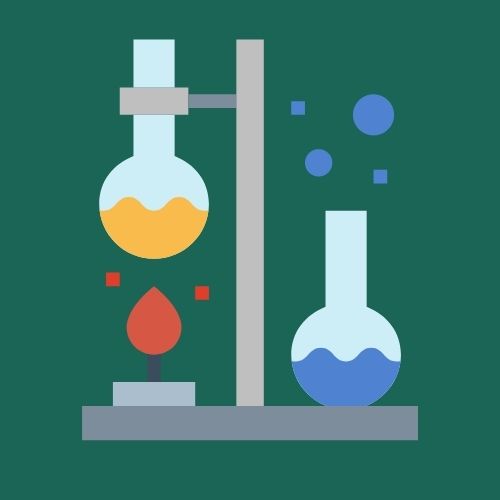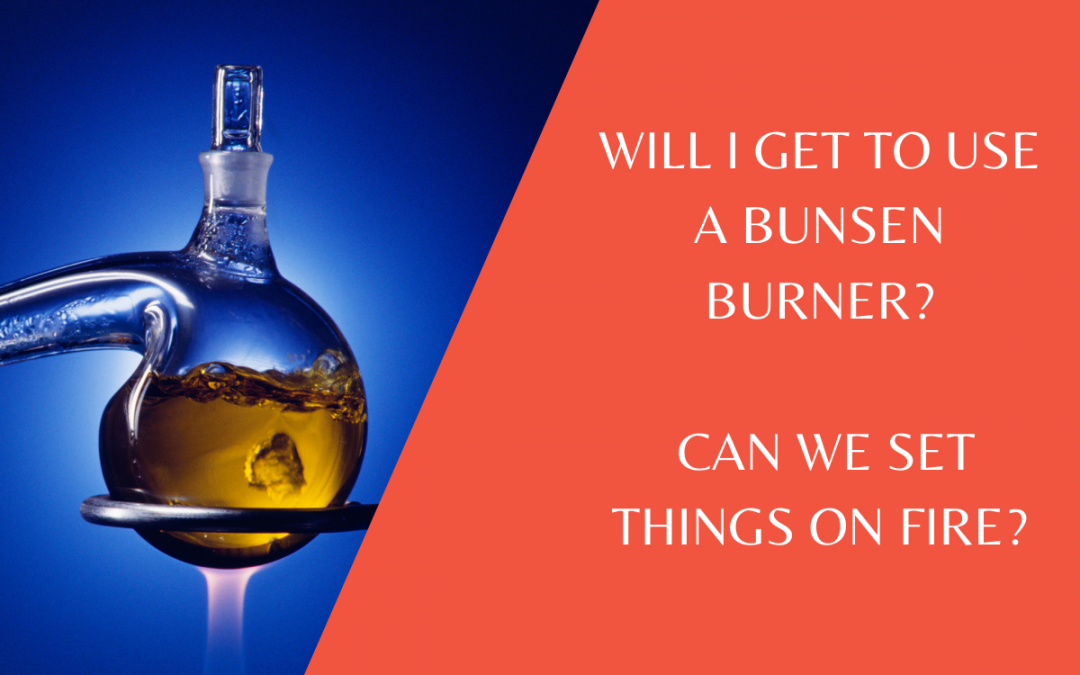How different is Science in secondary school compared to Primary?
Do you get to do more practicals?
Will I get to use a bunsen burner?
Can we set things on fire?
Here’s what you can expect in secondary science if you are starting in Year 7 in September.
What should I expect in my science lessons?
At secondary school KS3 Science is often taught as all one subject. For example; you will not attend Chemistry lessons, more likely you will have science lessons and in these, you will be taught topics that cover Biology, Chemistry and Physics. When you reach KS4 it is clearly taught as the three separate subjects to prepare you for your GCSEs and to help you depending on which set of exams you are taking. This determines how many grades you get. Each of your teachers will have a specialist science subject but they can teach all three science sciences. Some of you will have one teacher that teaches you all year and covers all the science, some of you may have two teachers that share the topics they teach.
Starting Year 7
Year 7 will start with an introduction to science. As covid has interfered with your usual transition days you may not have had the opportunity to experience a science practical in a secondary science lab yet. So when you first start you will be shown around the lab and have the safety rules explained.
Science teachers will also make sure one of the first practicals they show you is how to use a bunsen burner. This is both exciting and important, many of you won’t have used one and you will be using them regularly so need to get confident in setting them up, lighting them and using them safely. As a science teacher, this is one of my favourite lessons to teach.
Topics
Each school teaches a slightly different combination of lessons in Year 7; they will include a combination of Biology, Chemistry and Physics topics. There are some topics you are likely to cover this year, like Cells and Photosynthesis in Biology; Particle Theory and Atoms and Elements in Chemistry and Energy in Physics. Everything you cover now in KS3 is building the important foundations for KS4 and those all-important GCSE exams.
Lessons
At secondary school, most science lessons will take place in a science laboratory, so you have access to all the equipment you may need. These will be set up differently from your usual classroom and will have additional rules to follow to ensure all students are safe and know what to do in the case of an emergency.
Your lessons will be a combination of theory lessons, demonstrations of experiments from your teacher and practicals that you take part in. In each practical lesson, you will be reminded of the safety measures you need to follow as usually there will be a large number of you completing the experiment at the same time so this needs managing carefully. You will usually be given your practical equipment, including safety goggles and any chemicals and glassware you need.
Practicals
Every time we meet new Year 7 students and ask them what they are looking forward to in science, it is always the practicals. Experiments are one of the most fun, exciting and interesting ways to learn science. There are many simple experiments you will be shown during your time at secondary school. Hopefully this year the limitations that have been in place due to covid will be lifted so you can be enjoying all the experiments that schools have to offer. Remember that each experiment you do is covering a key learning objective as well, so make sure you follow the method and always write up your observations clearly. There will be opportunities to burn substances, test reactions of substances and also the odd explosion is always possible.
We hope this has given you an insight into what to expect in September when you join Year 7. Most importantly we think you should be looking forward to it, as science lessons have so much to offer. If you have liked the lessons you’ve done in primary school, you will thoroughly enjoy your secondary science lessons.
Don’t forget to get in touch if you have any questions or would like some help with your KS3 science learning to fill in any knowledge gaps you have.
KEEP UP TO DATE - DON'T MISS OUT!
Our regular newsletters are filled with helpful and interesting information to help you with your Science at school

